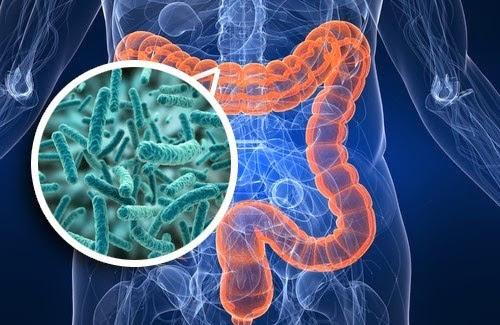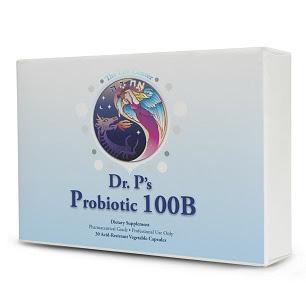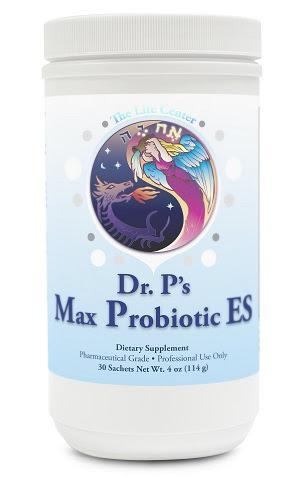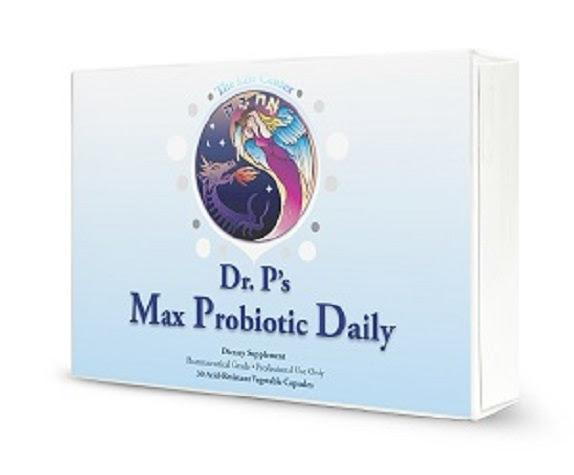- posted: May 27, 2016
This week we wanted to discuss the gut microbiome! While we know that it is important to have a healthy biotic balance in the gut, but what does that really mean? We'll break it down for you.
First, A few Fun Facts about gut microbiota:

- The development of an infants microbiome starts in utero. Children born to women who were exposed to household pets or farm animals during pregnancy, were less likely to develop allergies. Conversely, children born to women who took antibiotics during pregnancy, were more likely to develop asthma. This is due to the infant's strengthened immune system developed in utero.
- The ratio of Firmicutes to Bacteroidetes is 10X greater in the guts of obese individuals compared to lean individuals. This is influenced by a high-sugar, high-fat diet--ie the Standard American Diet (SAD). This allows for the growth of Firmicutes and depresses the growth of bacteroidetes. In an obese individual, the ratio of Firmicutes to Bacteroidetes is 35-to-1, vs 3-to-1 in a lean individual.
- Gut dysbiosis (an upset in the ratio of good bacteria to bad bacteria) contributes to inflammatory bowel disease (IBD). This is caused by the adhesion of the extra bad bacteria (Firmicutes for example) to the wall of the bowel.
- An infant's gut changes significantly over the first few months, and becomes relatively stable by age 2. "changes in microbial colonization of the gastrointestinal tract, a process that starts at birth, have been identified as a major risk factor in the development of food-related autoimmune diseases"
- Changes in the gut microbiome can cause changes in patterns of DNA methylation, which is a process that permits a gene to be turned on or off by producing metabolites such as folate, butyrate, and acetate. (more on this in next week's newsletter)
- 70% of the immune cells in the body reside in the gastro-intestinal tract.
- Prebiotics are a certain type of dietary fiber that feeds probiotic bacteria. This is very important in maintaining healthy gut flora. Prebiotics are found in bananas, onions, and Jerusalem artichokes, and garlic to name a few.
- Researchers believe that it may be possible to prevent colon cancer by improving the microbial community in the intestinal environment.
- "The gut microbiome may influence the develop,ment of hormone-related cancers such as breast, ovarian, and endometrial cancer through modulation of estrogen metabolism. Some bacterial speciees produce enzymes that alter the estrogen molucle so that there is increased absorption of free estrogen leading to hormone-dependent cancers. Dietary compounds can prevent this; one example is the dietary intake of O-methyltransferases from tomatoes, which can reduce exposure to the potentially mutagenic estrogen metabolites."
- Allergies and asthma are regarded as a failure in the development of a balance immune response. This is due to a lack of early exposure to microbes. Children that are delivered vaginally as opposed to via caesarean section, are exposed to more microbes. Also, babies are exposed to more microbes through drinking breast milk as opposed to formula.
- The bacteria in the gut is responsible for many important functions including metabolizing indegestible nutrients, and preventing the overgrowth of disease-causing bacteria. In addition, a healthy microbiota produce needed compounds which influence the behavior of immune cells. When the immune cells then travel through the body, they will properly trigger or temper inflammatory or disease responses.
- Researchers believe that an epigenetic diet (a diet which regulates gene expression ie--The Dr. P Protocol) enhances the health of the microbiome and could be an important tool in cancer prevention. We will discuss this in far greater detail in next week's newsletter, but in the meantime, check out this awesome website! It explains methylation and an epigenetic diet in an easy-to-digest format. http://learn.genetics.utah.edu/content/epigenetics/nutrition/
How do I protect/enhance my gut microbiome?
First of all, continue to follow the Dr P protocol! Processed foods full of chemicals and preservatives will inevitably increase the levels of bad bacteria in the gut. Removing these 'foods' will help your good bacteria to flourish quickly.
Add a high-quality probiotic to your diet. Here are a couple of options that we carry in the office, and in our online store:

Dr P's Probiotic 100B contains a proprietary blend of 100 billion strains of bacterium per capsule including Lactobacillus acidophilus, Bifidobacterium longum, and lactobacillus plantarum, as well as bifidobacterium lactis. (30-day supply)

Dr P's Max Probiotic ES comes in a sachet. Each sachet includes 40 billion strains of bacteria including Saccharomyces boulardii, lactoacillus acidophilus, bifidobacterium longum, lactobacillus plantarum, and bifidobacterium lactis.
(30-day supply)

Dr P's Max Probiotic Daily includes a blend of lactobacillus acidophilus, bifidobacterium longum, lactobacillus plantarum, and bifidobacterium lactis. Each capsule contains 30 billion strains. (30-day supply)
Get tested for infections at your next visit. If you are fighting an infection, your gut won't be able to re-balance itself until the infection is healed.
Consider genetic testing to identify your genetic make-up and ability to perform the methylation cycle. Again, more on this next week!
What is the takeaway Message?
Immune response, disease, mental health, and detoxification all originate in the gut! By choosing real food, you are taking a strong stance towards nourishment and health.
“If there's one thing to know about the human body; it's this: the human body has a ringmaster. This ringmaster controls your digestion, your immunity, your brain, your weight, your health and even your happiness. This ringmaster is the gut”
-Nancy S. Mure
Locations
6940 South Holly Circle Suite 201
Centennial, CO 80112, US
Office Hours
Our Regular Schedule
8am - 1pm
3pm - 5pm
8am – 1pm
3pm – 7pm
Closed
Closed
8am – 1pm
3pm – 7pm
8am – 2pm
Closed
Closed
Closed
Closed
Closed

